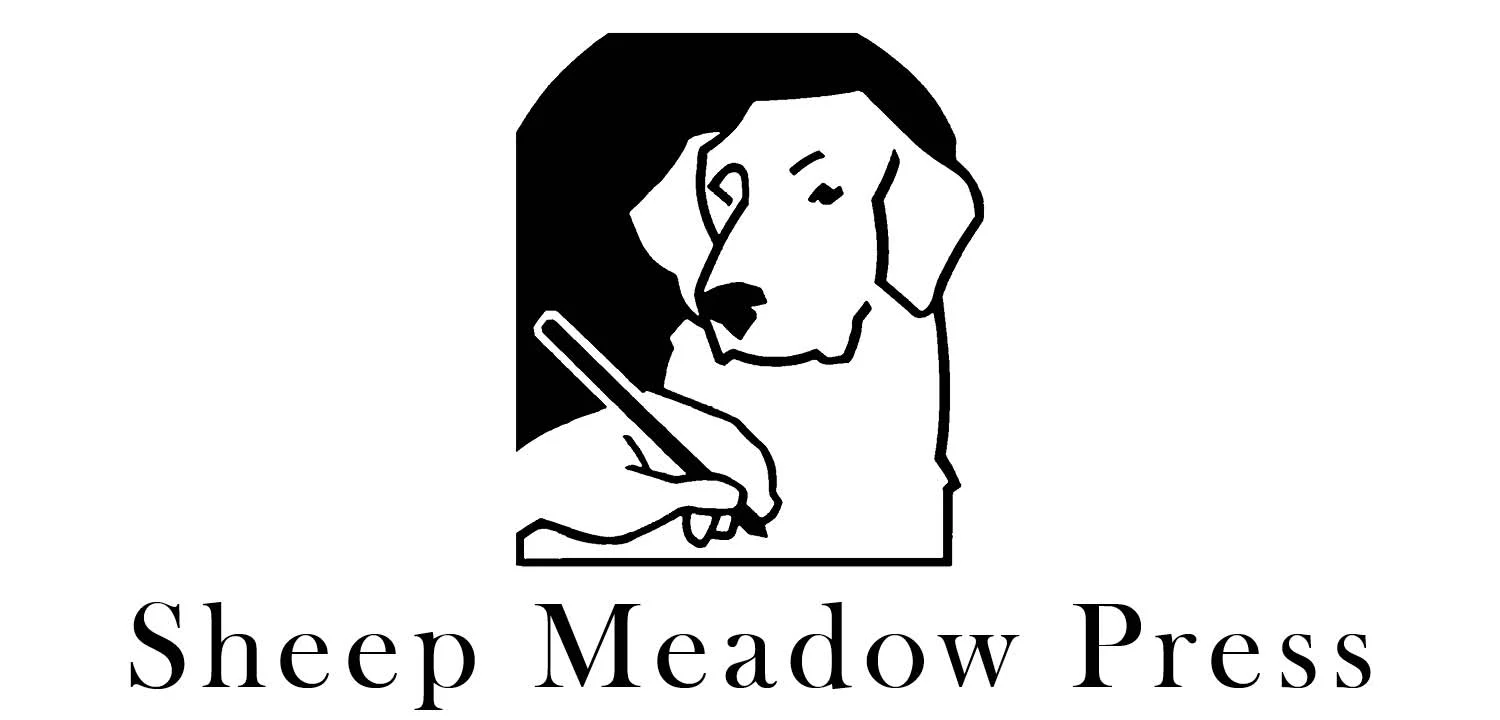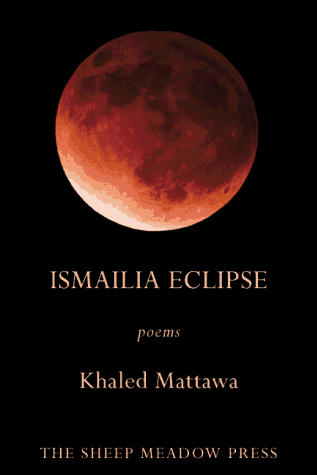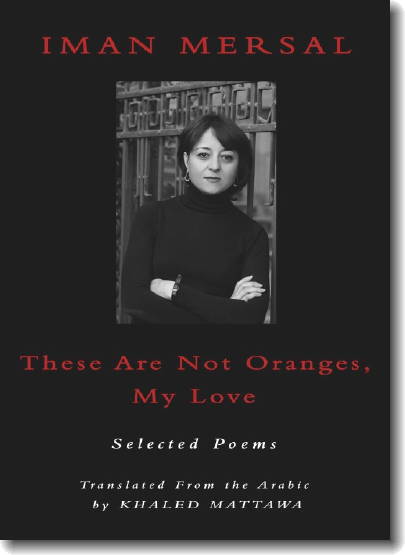KHALED MATTAWA is the author of four books of poetry: Tocqueville (New Issues Press, 2010) Amorisco (Ausable Press, 2008), Zodiac of Echoes (Ausable Press, 2003) and Ismailia Eclipse (Sheep Meadow Press, 1996). He has translated nine books of contemporary Arabic poetry by Adonis, Saadi Youssef, Fadhil Al-Azzawi, Hatif Janabi, Maram Al-Massri, Joumana Haddad, Amjad Nasser, and Iman Mersal (These Are Not Oranges, My Love, Sheep Meadow Press, 2008). Mattawa has co-edited two anthologies of Arab-American literature. He has been awarded the Academy of American Poet's Fellowship Prize, the PEN-American Center award for poetry translation, a Guggenheim fellowship, the Alfred Hodder fellowship from Princeton University, an NEA translation grant, and three Pushcart prizes. His poems have appeared in Poetry, The Kenyon Review, Antioch Review, Best American Poetry, among others.
“Khaled Mattawa's Ismailia Eclipse filters beautiful and terrifying images through multiple lenses that mystify and clarify. Because of Mattawa's unique subject matter and lyricism, no other young voice can eclipse his. He speaks from a place fortified with experience and imagination, and the reader is taken on a journey that challenges and humanizes.”—Yusef Komunyakaa
“Khaled Mattawa is unique among poets writing in English. Mattawa emigrated to the United States in 1979, at age 15, after spending his childhood in Libya. Separated from his Libyan parents and family, introduced to the United States and educated in Louisiana, Tennessee, and Indiana, Mattawa writes in English, his life and poetry inseparably rooted in both Arab and U.S. cultures. It would be an oversimplification to say that Ismailia Eclipse, a first book, joins the literature of exiled poets. It would be closer to the truth to observe that he has something in common with certain of the Jewish poets who wrote in Arabic in Muslim Medieval Spain, although Mattawa is secular and his longings mostly sensual. It is the revelation of poetic truth that is central to this book with its double vision of the Arab and American worlds, eclipsing and revealing one another.”—Stanley Moss



